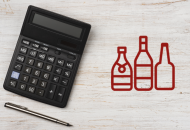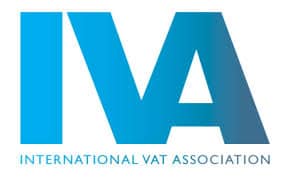Are you a company selling alcoholic beverages to the Czech Republic? Navigating the complex landscape of alcohol excise duties can be a daunting task. Understanding the regulations and staying compliant is crucial to avoid penalties or legal issues. In this article, we will dive deep into the world of alcohol excise duties in the Czech Republic and provide you with the essential information you need.
Understanding the regulatory framework for alcohol excise duties in the Czech Republic
Following the Directive (EU) 2020/262 for excise duties, the Czech Republic did establish a well regulatory framework for alcohol excise duties that businesses involved in the production and sale of alcoholic beverages must adhere to. The regulations are in place to ensure fair competition, protect public health, and generate revenue for the government. To understand and navigate this framework effectively, it is important to familiarize yourself with the key aspects of the regulations.
At the core of the regulatory framework are the excise duty rates, which vary depending on the type of alcoholic beverage. Beer, wine, spirits, and other alcoholic products each have their own specific duty rates. These rates are determined by the Czech government and are subject to periodic updates or changes. It is essential for businesses to stay updated with any adjustments to the duty rates as non-compliance can result in significant financial penalties. You can use our simulator tool to have an estimation of your alcohol excise duties in the Czech Republic.
Key considerations for businesses importing alcohol in the Czech Republic
When you’re importing alcoholic beverages in the Czech Republic, whether it would be a sale or a transfer of own goods, there are certain key considerations you need to keep in mind to ensure compliance with alcohol excise duty regulations.
For businesses involved in importing alcoholic beverages, whether it would be from outside the EU or from another Member State, it is important to understand the customs procedures and documentation requirements. Importers must accurately declare the type and quantity of alcoholic products being brought into the country to determine the applicable excise duty rates and the required documents to make the declarations at customs. Failure to provide accurate information or comply with customs procedures can result in delays, additional costs, or even seizure of the goods.
Calculation and payment of alcohol excise duties
Calculating and paying alcohol excise duties can be a complex process, especially for businesses dealing with multiple types of alcoholic beverages. The duty rates are typically based on the volume or strength of the product, which requires accurate calculations. It is important to have a thorough understanding of the formulas and methods used to calculate the excise duties to ensure compliance. Nevertheless, even when the calculations are right, it might be challenging to correctly categorize your product, in order to know which rate exactly to apply.
Once the excise duties have been calculated, businesses are required to make the necessary payments to the relevant authorities. It is important to understand these procedures and ensure timely and accurate payments to avoid penalties or legal issues.
Eurotax can help you with calculation and payment of your alcohol excise duties in the Czech Republic, do not hesitate to contact us here for more info.
Compliance requirements and reporting obligations
Compliance with alcohol excise duty regulations goes beyond simply paying the duties. Businesses are also required to fulfill certain reporting obligations and comply with specific requirements to maintain a good standing with the authorities.
The first step for selling your goods to the Czech market to private individuals is to register with the local Customs office. The registration step also requires transferring a security deposit to the Authorities, calculated based on your estimated liters to be shipped. Then, the key reporting obligations is the submission of excise duty returns. These returns provide detailed information on the quantity and type of alcoholic beverages produced, imported, or sold during a specific period. The returns must be submitted within the prescribed timeframe and in the required format. Failure to submit accurate and timely returns can result in penalties.
In addition to excise duty returns, businesses may also be required to maintain proper records and documentation. This includes invoices, receipts, import/export documents, and other relevant paperwork. Keeping organized and accurate records is essential to demonstrate compliance and provide evidence in case of any audits or investigations.
Resources and support for businesses dealing with alcohol excise duties
Navigating the regulatory landscape of alcohol excise duties can be challenging, but businesses don’t have to do it alone. There are various resources and support available to help businesses understand and comply with the regulations.
In addition to external resources, businesses can also consider seeking professional assistance from experts in the field. A tax expert like Eurotax can provide tailored service and advice to help businesses navigate the complex regulations and optimize their compliance strategies. Working with professionals can provide businesses with peace of mind and ensure that they are fully compliant with the excise duty regulations. Do not hesitate to contact us here for more info.






















